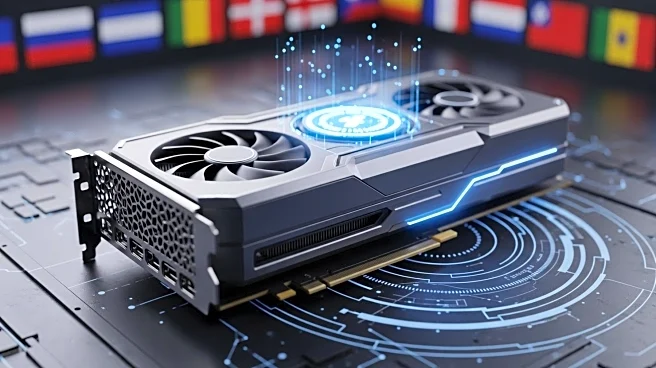What's Happening?
China's State Administration for Market Regulation has accused Nvidia of violating antitrust laws related to its 2020 acquisition of Mellanox Technologies. The regulator claims that Nvidia did not adhere to certain conditions imposed during the approval of the acquisition, which were meant to prevent anti-competitive practices and ensure supply to China. This announcement coincides with ongoing trade negotiations between the U.S. and China, adding pressure to U.S. chipmakers. Nvidia's stock experienced a decline of approximately 2% in pre-market trading following the announcement. Nvidia's spokesperson, Hector Marinez, stated that the company complies with the law and will continue to cooperate with relevant government agencies.
Why It's Important?
The accusation against Nvidia is significant as it highlights the growing tensions between the U.S. and China, particularly in the tech industry. China's increased scrutiny of foreign acquisitions in advanced tech industries signals its intent to influence global antitrust norms and reduce dependence on foreign technology. This move could impact U.S. companies operating in China, potentially leading to stricter regulations and reduced market access. The situation underscores the strategic importance of semiconductors and advanced technology in international trade and diplomacy, affecting stakeholders in both countries.
What's Next?
China's antimonopoly regulator has indicated that it will continue its investigation into Nvidia's practices. This could lead to further regulatory actions or restrictions on Nvidia's operations in China. The ongoing trade negotiations between the U.S. and China may also be influenced by this development, potentially affecting future agreements or tariffs. U.S. companies may need to reassess their strategies in China, considering the increased regulatory scrutiny and potential market challenges.
Beyond the Headlines
The broader implications of China's actions against Nvidia may include a shift in global antitrust enforcement, with China taking a more assertive role. This could lead to changes in how international companies approach mergers and acquisitions, particularly in the tech sector. Additionally, the situation may prompt discussions on the balance between national security and economic interests, as countries navigate the complexities of global trade and technology competition.









